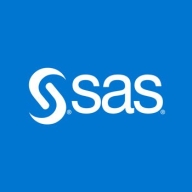

Find out what your peers are saying about Databricks, Knime, Amazon Web Services (AWS) and others in Data Science Platforms.
The enterprise subscription offers more benefits, ensuring valuable outcomes.
Microsoft technical support is rated a seven out of ten.
They provide callbacks to ensure clarity and resolution of any queries.
Microsoft Azure Machine Learning Studio is scalable as I can choose the compute, making it flexible for various scales.
We are building Azure Machine Learning Studio as a scalable solution.
SAS Visual Analytics is stable and manages data effectively without crashing.
It would be beneficial for them to incorporate more services required for LLMs or LLM evaluation.
In future updates, I would appreciate improvements in integration and more AI features.
I find the pricing to be not a good story in this case, as it is not affordable for everyone.
In terms of configuration, I would like to see AI capabilities since many applications are now integrating AI.
I rate the pricing as three or four on a scale of one to ten in terms of affordability.
The platform provides managed services and compute, and I have more control in Azure, even in terms of monitoring services.
Azure Machine Learning Studio provides a platform to integrate with large language models.
Machine Learning Studio is easy to use, with a significant feature being the drag and drop interface that enhances workflow without any complaints.
The ability to query information from our Excel data into SAS to view specific data is invaluable.


Azure Machine Learning is a cloud predictive analytics service that makes it possible to quickly create and deploy predictive models as analytics solutions.
It has everything you need to create complete predictive analytics solutions in the cloud, from a large algorithm library, to a studio for building models, to an easy way to deploy your model as a web service. Quickly create, test, operationalize, and manage predictive models.
Microsoft Azure Machine Learning Will Help You:
With Microsoft Azure Machine Learning You Can:
Microsoft Azure Machine Learning Features:
Microsoft Azure Machine Learning Benefits:
Reviews from Real Users:
"The ability to do the templating and be able to transfer it so that I can easily do multiple types of models and data mining is a valuable aspect of this solution. You only have to set up the flows, the templates, and the data once and then you can make modifications and test different segmentations throughout.” - Channing S.l, Owner at Channing Stowell Associates
"The most valuable feature is the knowledge bank, which allows us to ask questions and the AI will automatically pull the pre-prescribed responses.” - Chris P., Tech Lead at a tech services company
"The UI is very user-friendly and the AI is easy to use.” - Mikayil B., CRM Consultant at a computer software company
"The solution is very fast and simple for a data science solution.” - Omar A., Big Data & Cloud Manager at a tech services company
SAS Visual Analytics is a data visualization tool that is used for reporting, data exploration, and analytics. The solution enables users - even those without advanced analytical skills - to understand and examine patterns, trends, and relationships in data. SAS Visual Analytics makes it easy to create and share reports and dashboards that monitor business performance. By using the solution, users can handle, understand, and analyze their data in both past and present fields, as well as influence vital factors for future changes. SAS Visual Analytics is most suitable for larger companies with complex needs.
SAS Visual Analytics Features
SAS Visual Analytics has many valuable key features. Some of the most useful ones include:
SAS Visual Analytics Benefits
There are many benefits to implementing SAS Visual Analytics. Some of the biggest advantages the solution offers include:
Reviews from Real Users
Below are some reviews and helpful feedback written by PeerSpot users currently using the SAS Visual Analytics solution.
A Senior Manager at a consultancy says, “The solution is very stable. The scalability is good. The usability is quite good. It's quite easy to learn and to progress with SAS from an end-user perspective.
PeerSpot user Robert H., Co-owner at Hecht und Heck GmbH, comments, “What I really love about the software is that I have never struggled in implementing it for complex business requirements. It is good for highly sophisticated and specialized statistics in the areas that some people tend to call artificial intelligence. It is used for everything that involves visual presentation and analysis of highly sophisticated statistics for forecasting and other purposes.
Andrea D., Chief Technical Officer at Value Partners, explains, “The best feature is that SAS is not a single BI tool. Rather, it is part of an ecosystem of tools, such as tools that help a user to develop artificial intelligence, algorithms, and so on. SAS is an ecosystem. It's an ecosystem of products. We've found the product to be stable and reliable. The scalability is good.”
We monitor all Data Science Platforms reviews to prevent fraudulent reviews and keep review quality high. We do not post reviews by company employees or direct competitors. We validate each review for authenticity via cross-reference with LinkedIn, and personal follow-up with the reviewer when necessary.